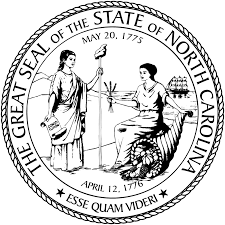If enacted, it would further propel North Carolina’s solar revolution, which has already catapulted the state to fourth place nationwide in total solar energy development. Last month 10 major corporations – including Volvo, Wal-Mart, Lowe’s, Target and Macy’s – urged N.C. House Speaker Tim Moore to enact such a policy and let them buy power directly from third-party power suppliers.
In North Carolina, lawmakers are also interested in helping domestic military bases achieve a Department of Defense goal of generating at least 25 percent of their power from renewable resources.
“I’m coming at this from a Republican viewpoint,” said Rep. John Szoka of Fayetteville, one of the four GOP sponsors of the House bill. “I believe in free markets and I believe in property rights. This allows property owners to use their property as they see fit.”
Charlotte-based Duke, the nation’s largest electric utility, has been lukewarm to the bill’s proposed financing concept, known as third-party leasing. Under such financing arrangements, an energy developer leases a private rooftop to install solar panels and sells the power directly to the property owner, bypassing the utility entirely.
The developer also supplies the upfront construction and equipment costs, so that the household or business simply locks in on a fixed monthly fee, not unlike a home mortgage.
Four years ago a proposal to merely study the pros and cons of third-party leasing arrangements went nowhere.
“There was opposition from a lot of people,” recalled former Republican legislator Ruth Samuelson, now a philanthropic adviser in Charlotte. “We said, ‘Let’s give everyone some time to get used to this idea that is probably inevitable.’”
Popular option
About half the states in the U.S. allow third-party leasing options, with Georgia enacting its policy two weeks ago. Duke officials supported South Carolina’s policy, adopted last December, because it was paired with other energy provisions the company favored.
“A lot of solar issues are interconnected. So you take a little, you give a little,” said Duke spokesman Randy Wheeless. “There was a lot of compromise going on. We see that as a more effective way of doing it.”
Duke is embracing renewables around the country even as critics say the company is stalling to protect its business model here. In February, Duke acquired a majority interest in California-based solar panel installer REC Solar, promising to invest up to $225 million in the company’s solar projects. REC specializes in commercial solar projects through financing, leases and power purchase agreements.
In September Duke said it will spend $500 million to buy three industrial-scale solar farms and buy power from five other solar farms, all in North Carolina.
South Carolina’s solar energy law allows a concept called net metering, which is already legal in North Carolina. In net metering, a household or business can sell excess power back to the utility, sometimes at full retail cost.
In North Carolina, Duke would like state officials to reduce the rate paid to its net metering customers, saying the company is overpaying for solar power, a suggestion solar advocates have denounced and vowed to fight.
The only restriction in the North Carolina bill is that the solar facility be sized to supply no more than 125 percent of the customer’s average annual power usage.
“That protects them from somebody coming in here trying to set up some kind of deal where they’re going to sell power to a city or to multiple houses,” said one of the bill’s co-sponsors, Rep. Ralph Johnson, a Democrat from Greensboro.
Valid concerns
Several of the sponsors of the North Carolina bill said Duke’s concerns have validity and will need to be addressed. Most of the states that allow third-party financing and leasing arrangements are deregulated utility markets, such as in the Northeast and California.
But in North Carolina’s regulated environment, a utility company is legally required to supply power to everyone in its service area in exchange for being granted monopoly status. The regulated utility is obligated to maintain power reserves during heat waves and cold snaps, and to restore power during outages.
Allowing non-utilities to cherry-pick a utility’s captive customers upsets the balance sought in a regulated approach like North Carolina’s, said James McLaworn, head of the Electric Division of the Public Staff, the state agency that represents utility customers in rate matters.
“It’s called cream-skimming – someone coming in to pluck off the most profitable customers,” McLawhorn said. “Utilities have built the systems to serve all those customers, and all of a sudden someone takes customers away.”
That infrastructure – transmission, distribution, transformers, bucket trucks, backup power plants – is partially paid for by a flat monthly facilities charge. This fee is charged even if a customer doesn’t consume a single watt of power during the billing period.
Residential customers of Duke Energy Progress pay $11.13 a month, Duke Energy Carolinas customers pay $11.80 and Dominion North Carolina Power customers pay $11.05.
“If they want to increase it from $11 to $20, I’m fine with that if that’s what it takes,” he said. “The thesis here is if you can do this, you can save money on your power bill.”

